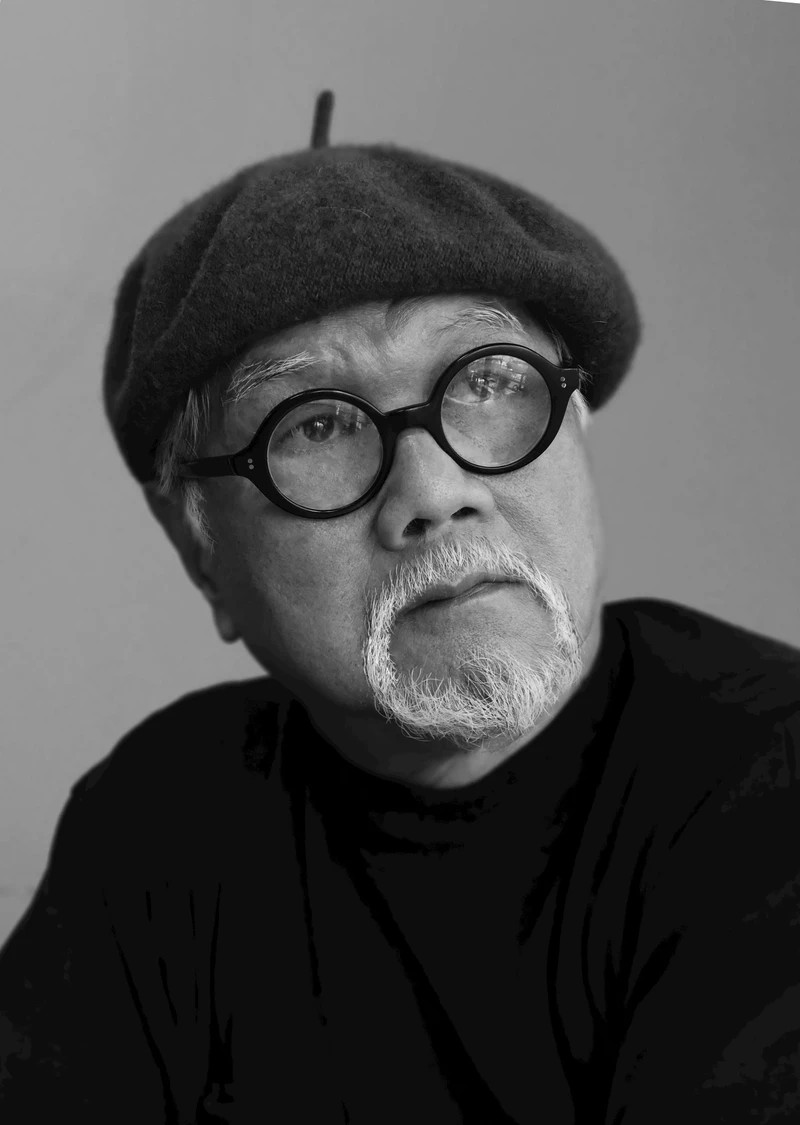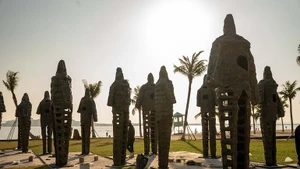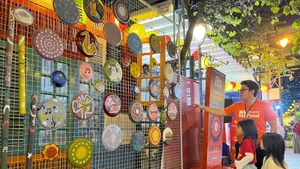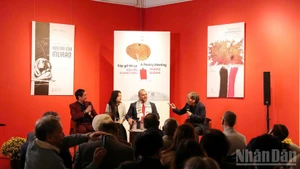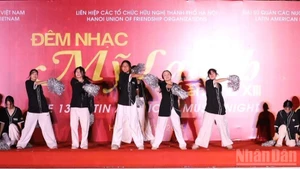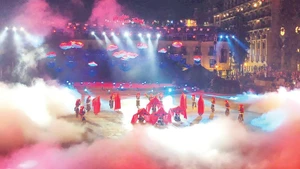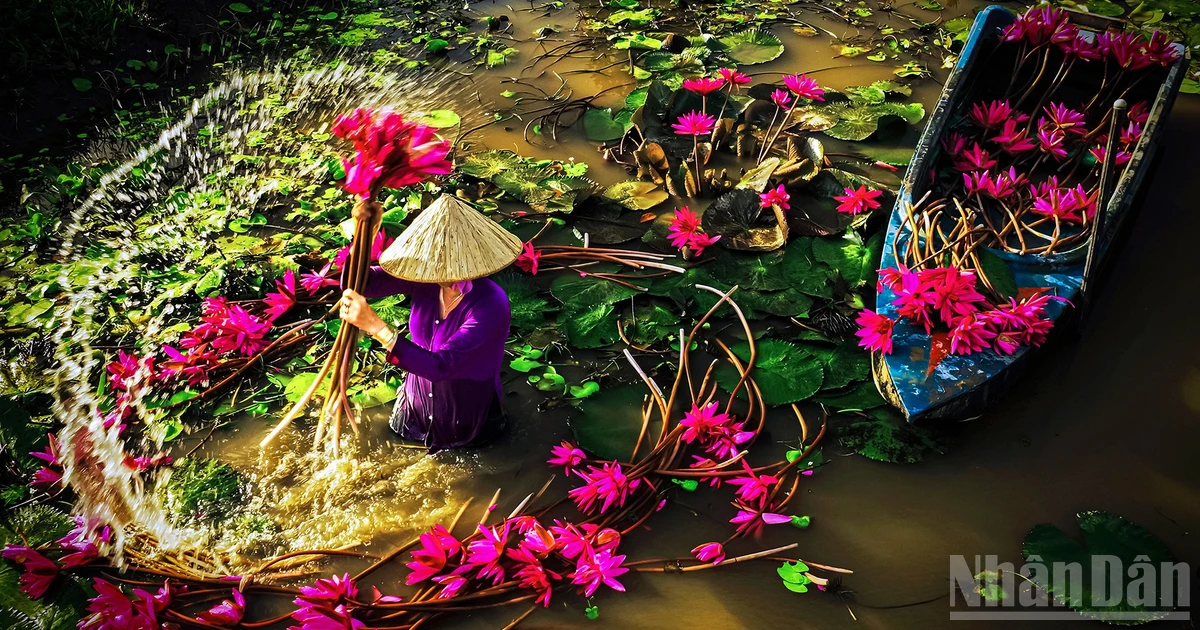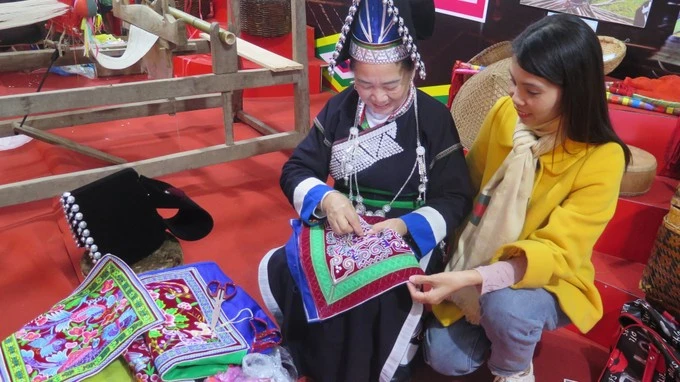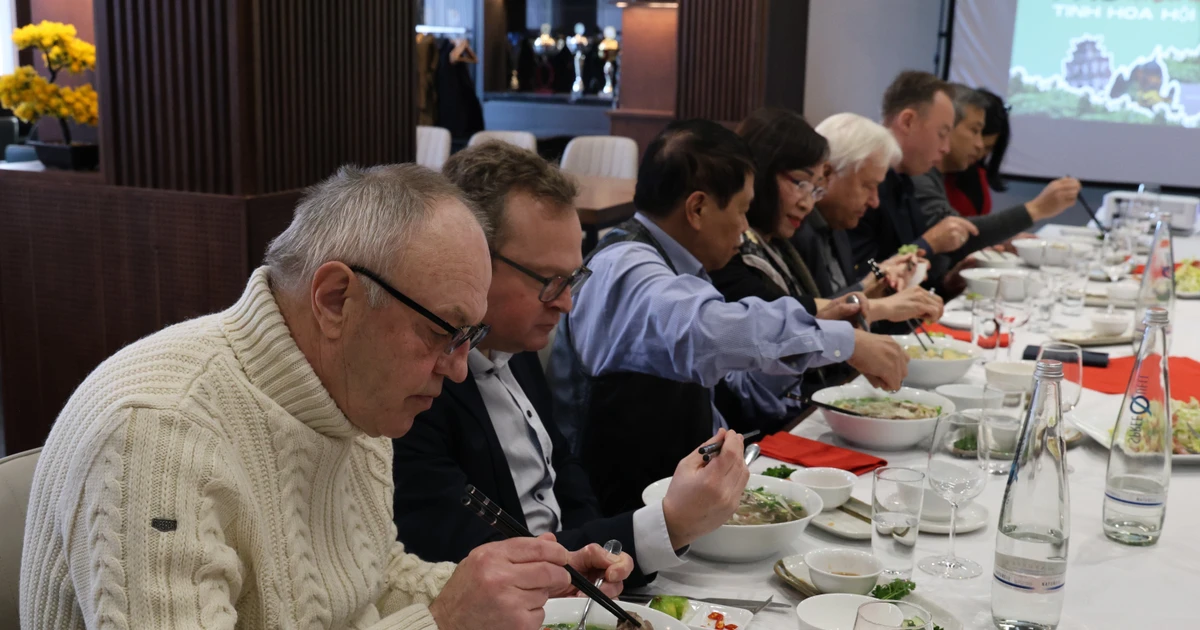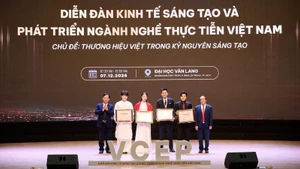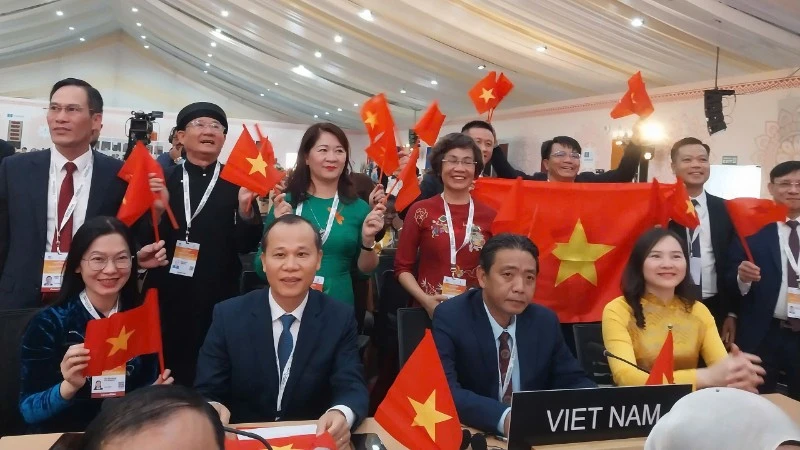It is difficult to creat great photos
Q: You often say that you are a photographer of daily life. Perhaps you started your journey with photography in a context related to your daily life rather than as a task assigned by an organisation?
A: That’s right. In 1973, I first held a camera in a unique situation when our extended family welcomed a cousin who had been in the tank amour force but had lost contact for a long time. I only learned about this reunion a few days before it happened, and at that time, I did not know about photography, even though my entire family worked in film. My older brother and my third brother were both filmmakers. I learned to take photos in a day, from loading film to focusing and pressing the shutter. I remember that day, the weather was chilly, and I went to Thuong Tin Station (then part of Ha Tay Province, now part of Hanoi) with another relative to welcome our family member. The scene was chaotic, and when I met my cousin, the three of us embraced joyfully together. Of course, I didn’t forget my task; I picked up the camera and took about 20-25 shots, primarily focusing on my cousin. Later, I regretted not being aware of the role of the camera at such a historically valuable moment—capturing a scene of prisoner exchange following the Paris Agreement.
Q: What does that regret mean for your photography in the future?
A: I approached photography naturally and intimately, always preferring to capture simple moments in daily life. Importantly, I respect the authenticity of the photos, avoiding any interventions, edits, or staging with others for the shot.
My awareness of photography deepened when I transitioned from being a photojournalist at the Van Nghe (Literature – Arts) Newspaper to working at the ‘Xua va Nay’ (Past and Present) Magazine under the Vietnam Historical Science Association. Through my work there, I began to view historical aspects to document and preserve.
For example, regarding Hanoi, I sought out the beloved streets of the city from my childhood and adolescence—roads and alleys that have changed significantly over time. I believe that by examining architecture, one can recognise the transformations of a place, especially in Hanoi. Therefore, when I created the photo book "Ha Noi Dau Yeu" (Beloved Hanoi), many people enjoyed reminiscing about the Hanoi of yesteryear and how the people lived and dressed at that time. These photos carry historical value. The book was awarded the 'Bui Xuan Phai: For Love of Hanoi Awards in the category of works in 2017.
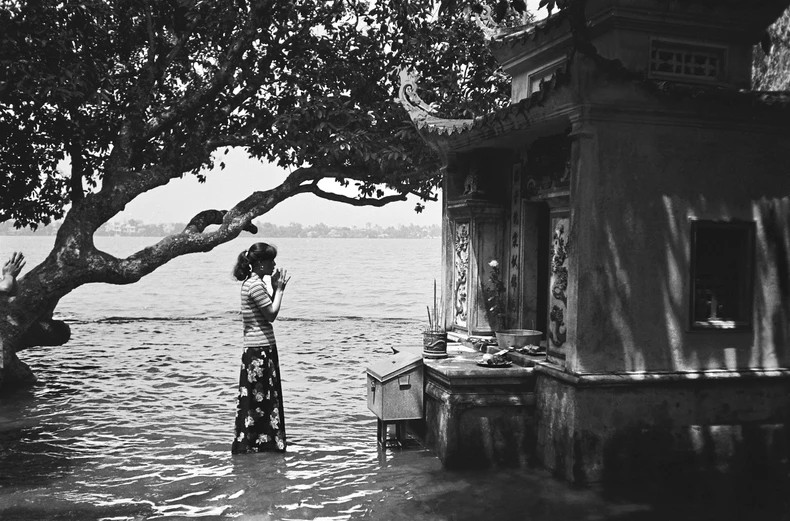 |
| Phu Tay Ho (West Lake Palace), a day in 2000. (Photo: NGUYEN HUU BAO) |
Q: You mentioned authenticity and historical elements in photography. How do you perceive the artistic aspect of photography?
A: In photography, I value authenticity. A beautiful photo can sometimes be appreciated from an aesthetic perspective. I believe that beautiful photographs are difficult to achieve. A beautiful photo has language, a message, and an artistic statement.
In the past, Hanoi had a profession of re-treading bicycle tyres. Due to the subsidised economy, which distributed everything to the people, it often took a family several rounds of distribution to gather enough parts for a bicycle, leading to situations where the tyres were larger than the rims. Thus, the profession of re-treading bicycle tyres emerged in Hanoi. People had to "retread" the tyres, making them smaller to fit the rims to make them usable. In addition, there was the scene of people lining up to get water from public faucets. Photographs capturing these scenes demonstrate the tremendous power of photography through realism, forever remaining images belonging to the past.
Photography is a personal hobby
Q: The act of photographing "without staging" or "without interference" probably means you do not make a living from photography?
A: I take photos as a hobby in life; in reality, I cannot make a living from photography. In the past, during difficult times, I took on service photography to earn income for my family. Otherwise, I decided that taking photos is for myself. I shoot exactly as my personality is. Even at home, I only hang two pictures to please my wife and children. I also steered clear of photography competitions.
Q: I know that after seeing images of you wandering through the winter nights around Hanoi to take photos, many people think you had a hard time with this interesting "hobby"?
A: In fact, it is a need and a way to enjoy life, similar to how I enjoy climbing mountains, crossing streams, bathing in springs, and sleeping in the forest. If I went out to take photos to make money or to fulfil a mission that required hard work through the night, then that would be truly arduous and a sacrifice.
To capture realistic photographs, the photographer must delve into life. When I went to Ha Long, I did not photograph the beautiful scenery of the bay; instead, I went to fishing villages to see how people lived. During the floods in Hanoi in the past, I hired a boat to go to Phuc Tan and Phuc Xa areas, navigating through the Red River’s currents to understand the river's boundaries. I take photos as a way of learning. Because I often go alone, I receive questions about my shooting angles, like "How did you get this shot?". I am very pleased that, over time, my photos have received much support and sharing from people. Alongside those who do not appreciate them, others resonate with my photography and cherish my work.
Q: But the hobby of photography also requires great effort. After many years of war and facing material hardships, how have you maintained your passion for photography until now?
A: Photography is a very costly hobby. The hardships during the war were tough, but the subsidised economy was even more challenging. I still remember that my salary was only enough to buy three rolls of film. I was fortunate because I had older brothers in the film industry, which allowed me to obtain leftover film and develop chemicals. Over time, life continued to flow, and depending on the circumstances, I adapted accordingly. I might have to piece things together, but as long as I could take photos, that was good enough.
Everyone has their own way to nurture their passion, I believe. As you see, poets cannot live solely on poetry, yet everything continues, and poetry still exists in life thanks to the continuity of generations of poets.
Thank you very much!
